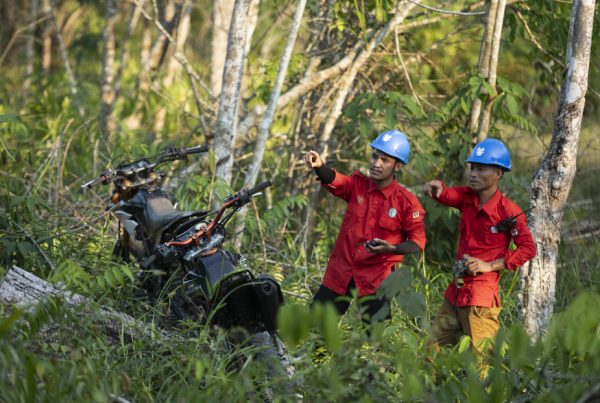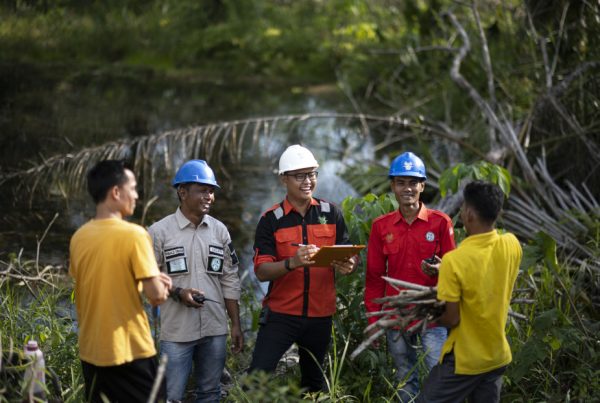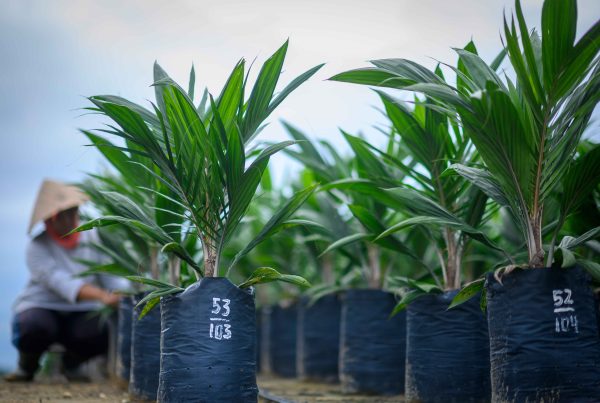Meet the Tyto Alba! Better known as the Barn Owl, this popular bird can be easily spotted in Asian Agri’s oil palm plantations because of the many nest boxes strategically placed to attract the species.
As natural predators, Barn Owls are highly effective at keeping pests in the plantations at bay. However, Barn Owls do not have a great reputation, thanks to traditional beliefs which equate the species to evil.
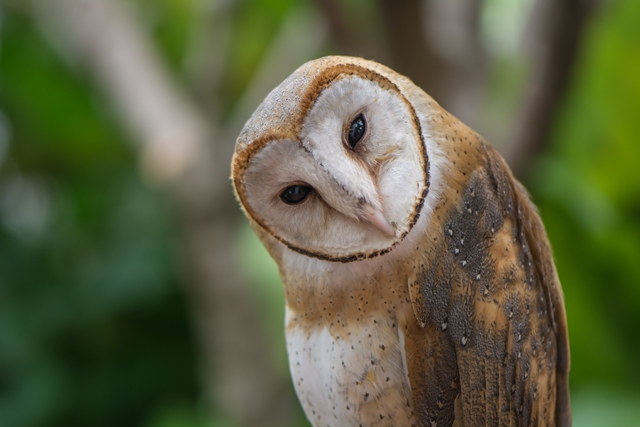
Due to this, farmers used to banish them, without realising the natural predators’ economic significance.
Besides having big black frontal eyes, Barn Owls emit raspy screeches and hissing noises, instead of soft hoots. These screams are quite painful to the human ears at close range, especially when they are drawn out as long, eerie shrieks.
Because of these features, many nicknames have been given to this bird, which is found almost all across the world. The Barn Owl is often called the Ghost Owl, White Owl, Demon Owl, Death Owl, Hissing Owl and Screech Owl, all nicknames which are often used negatively.
However, at Asian Agri, the Barn Owl is viewed as The Guardian.
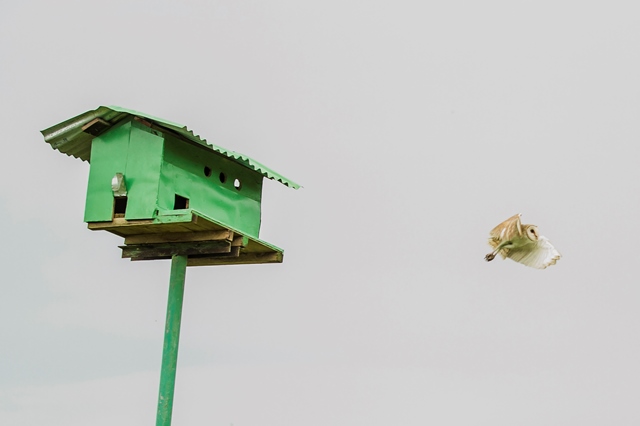
Haunt and Hunt
Unlike other birds, Tyto Alba has the ability to fly smoothly and silently. As a nocturnal animal, it also has excellent low-light vision.
The Barn Owl has impeccable hearing, which allows it to precisely determine the position of a chosen victim by its sound alone. Its big claws also give it the ability to seize the prey, which it can then kill with its strong beak before swallowing it in a single gulp.
With all these capabilities, the Barn Owl is one of the most economically valuable wildlife animals when it comes to agricultural purposes.
Asian Agri finds these owls to be more effective than poison in keeping rodent numbers down. With 100,000 hectares of oil palm plantation, the company would have to release large quantities of chemicals into the fields and taint the environment, if it were to rely fully on pesticides.
Therefore, in order to safeguard the industry, income of the local community and the environment, Asian Agri has turned to the feathery guardians to haunt and hunt down the rats which usually target mature palms by eating the fruit from the trees, reducing their productivity in the process.
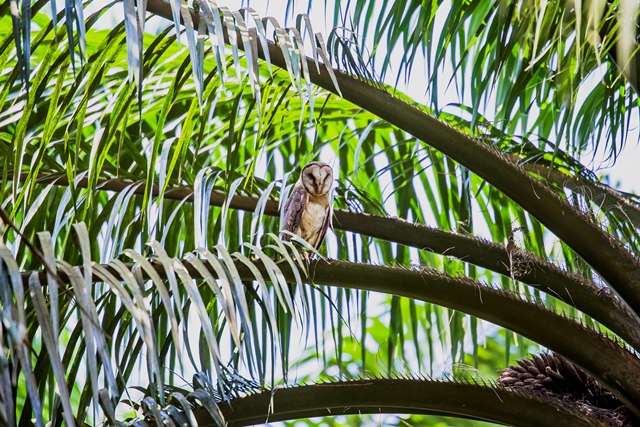
Self-reliant defender
Making use of Barn Owls to work with smallholders in oil palm plantations have been an effective method for Asian Agri so far.
As this species does not build nests, relying instead on the availability of existing nesting sites, putting up nesting boxes is an easy way to attract a breeding pair.
Asian Agri has built one nesting box for every 25 hectares of land, bearing in mind that these birds are fiercely territorial and distance is required to prevent conflicts. Barn Owls are also sedentary and tend to stay in the same hunting ground for years.
Asian Agri also employs dedicated staff to care for the owls, keeping track of the birds’ numbers and their health.
“We check their health bimonthly, and it is not uncommon to find newborn owlets in the nests,” said Zulkarnaen, one of the Asian Agri owl keepers.
“After the owlets reach six months of age, they will naturally leave the nesting site in search of their own. We do not force them to stay if they want to go into the wild,” he said.
Effective natural predator
Compared to other owls of similar size, the Barn Owl has a much higher metabolism, meaning that it always requires more food. A single owl can eat three to five rats in a single night, making it a highly efficient guardian of the plantation.
Bernard Riedo, Asian Agri’s Sustainability and Stakeholder Relations, said using the owls also allows the plantation pests to be controlled without harming any of the other animals living nearby.
Asian Agri also works together with its partner smallholders to encourage them to use Tyto Alba as a natural pest control method in their plantations.
This is consistent with Asian Agri business philosophy, which states that operations carried out should be good for the community, good for the country, good for the climate, good for the customer and then only can it be good for the company.


